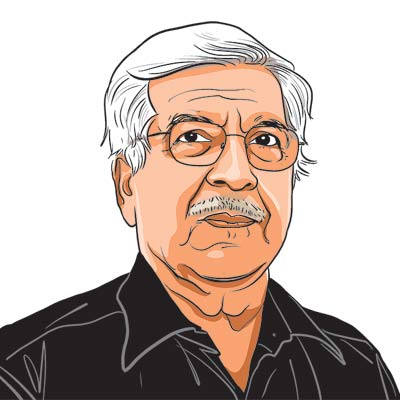Opinion Last of the Golden Agers
Bob McNamara was a phenomenon,and a complex one at that. Also,he was a phenomenon of my generation. In the mid-60s,in College America,he was a hate figure. A former president of Ford...
Bob McNamara was a phenomenon,and a complex one at that. Also,he was a phenomenon of my generation. In the mid-60s,in College America,he was a hate figure. A former president of Ford when it was still a real company he was the epitome of ruthless efficiency as US defence secretary,of saturation and carpet bombing to destroy the sanctuaries of the Viet Cong. As the idealism of the Kennedy period gave in to the cynicism of the Johnson era,he was at the centre of protest. That the first sit-in was at Berkeley is a myth of history. It was at College Hall at the University of Pennsylvania; and,as the vice-president of the Foreign Students Association,I was there. So,of course,were many of my teachers. But it was a genteel world. Penn was the Iviest of the Ivies; the Quakers were horrified at the charge that they didnt defend the leftist India-specialist Daniel Thorner from McCarthy and went to any lengths to prove that Daniel left on his own. And,in the genteel protests in old coffee houses and mahogany-tiled college lounges,McNamara was very much there in spirit.
Of course,my generation would give all of that up and come home. A few years later,I was in the Planning Commission,building the first real plan for food self-reliance on orders from Indira Gandhi,the first one.
McNamara was now in his second or third? role and was visiting India as head of the World Bank. The same no-nonsense efficiency,the same missionary zeal,and the belief in his own infallibility. Now the objective was a little more noble: abolishing poverty. The finance ministry adored him. But when he asked to go to the Planning Commission,things were different. Sukhomoy Chakravarti was in Holland at the time,and so my boss was the one and only P.N. Haksar and he would ask me to join when royalty visited.
Haksar,a man capable of laying on copious amounts of charm,was conspicuously nasty and aloof on this occasion.
McNamara was quite clear to us that he thought we Indians wouldnt be able to solve our food problem and was very critical of the target of 125 million tonnes of grain in 1978-9. He went with the finance ministry,which had officially contradicted the Planning Commission and said that output would be lower. McNamara demanded facts. As a young econometrician,I was aching to give him the PPDS spreadsheet of the agricultural sub-model,but was held at bay. Instead,McNamara was treated to a patented Haksar lecture on how the body juices start flowing when grain goes down the gullet.
McNamara reportedly went back and told the World Bank Delhi lot that the Planning Commission had no facts,a cardinal sin. They rubbished the self-reliance plan in their reports,informally adding that only the long-haired boys of the Planning Commission believed India would produce 125 million tonnes of grain in 1978. They were right. India produced only 127 million tonnes in 1978. We have never looked back. I never really understood this streak in Haksar. It wasnt as if the nastiness was reserved for ideological opponents: a few days later,he was enchanting to Margaret Thatcher,asking me after she left: Isnt she a doll?
McNamaras great legacy was to make the fact-based solution to poverty a development theory. I know,thanks to my friend Vivek Bhandari,that in his final phase he was a mellowed man,questioning the wisdom of some of his earlier policies and beliefs. At one level,he was a very understandable phenomenon. He was a product of what Lafeber has called the Golden Age of Capitalism,the dream-like quality of the Kennedy days,the infallibility of the large technocratic organisations,the single-minded pursuit of utilitarian goals. At Penn,in the econometrics seminars,we would lazily take out a pencil from our jeans when some notes were to be taken,for we knew we would have to slog through it at home. But the Wharton boys would come in three-piece suits,full of irrelevant questions. All this would give way in time,of course. That McNamara was willing at the end to question his beliefs suggests that there is perhaps something held in common in the energy in all of us. Hey,I hope I am not getting old…
The writer,a former Union minister,is chairman,Institute of Rural Management,Anand express@expressindia.com





